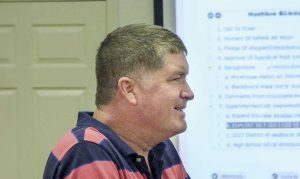Nothing appears beyond the reach of the social engineers, not even cake.
In a 7-2 ruling, the Supreme Court said the Colorado Human Rights Commission had failed to take into account the religious beliefs of a Lakewood baker who refused to make a wedding cake for a gay couple. Justice Anthony Kennedy, who has sometimes sided with the liberal wing of the court, was highly critical of the commission, which he said had written its anti-discrimination regulations in ways that were hostile to the faith of the baker, Jack Phillips.
Kennedy’s majority opinion specifically noted that the ruling was a narrow one and that the apparent tip in the balance in favor of Phillips was the language used by the commission, which appeared to the court majority to denigrate Phillips’ Christian beliefs.
While Phillips may now enjoy protection, others may not. The gay rights juggernaut has other cases before various courts involving businesses and individuals who have refused services to same-sex couples wishing to marry.
The point has been made that no Kosher restaurant would — or should — be compelled to serve non-Kosher food to a customer. The same goes for a Muslim baker, who might refuse to put a Star of David on a cake in celebration of Israel’s 70th anniversary. As long as cakes, photographers and other services are available in an area, business owners should be allowed to decide who they will serve and who they will not serve.
Beachgoers are familiar with signs that say “no shirt, no shoes, no service.” Is that discrimination? Of course it is, but it is allowed because proprietors have a right to create an atmosphere that is attractive to a wide range of customers.
As he did during oral arguments, Justice Kennedy noted that the Colorado Human Rights Commission demeaned Phillips’ faith by suggesting that “religious beliefs cannot legitimately be carried into the public sphere or commercial domain, implying that religious beliefs and persons are less than fully welcome in Colorado’s business community.”
By downgrading people of faith, the Colorado Human Rights Commission upgraded persons of no faith. It also required people of faith to hide their beliefs in a closet, a particularly apt analogy since the gay rights movement long ago abandoned the closet in favor of the public sphere.
The goal of the gay rights movement, it appears to me, is to force people who disagree with them based on their faith to deny their beliefs and accept behavior they regard as sinful.
The nation’s Founding Fathers expressly forbid Congress (not states) from establishing a religion so that people might have the right to freely exercise their faith. The restriction on government comes before the liberty granted to individuals in the First Amendment, indicating they wanted to protect people from government intrusions on their practice of faith more than they wanted to protect government from being influenced by people of faith.
The website uscourts.gov puts it this way: “The Free Exercise Clause protects citizens’ right to practice their religion as they please, so long as the practice does not run afoul of ‘public morals’ or a ‘compelling’ governmental interest.”
Public morals? Does that ever need updating in an age when virtually anything goes! The pivotal phrase is “practicing their religion as they please.”
If Phillips owned the only bakery in town and there wasn’t another within a reasonable walking or driving distance (or online service), the gay couple might have had a more compelling case.
In the face of repeated lawsuits and personal attacks, conservative religious people have been asking, “Where are my rights?”
In at least this one case, the Supreme Court has sided with them, though the battle is far from over.
[Readers may email Cal Thomas at [email protected].] ©2018 Tribune Content Agency, LLC.









Leave a Comment
You must be logged in to post a comment.